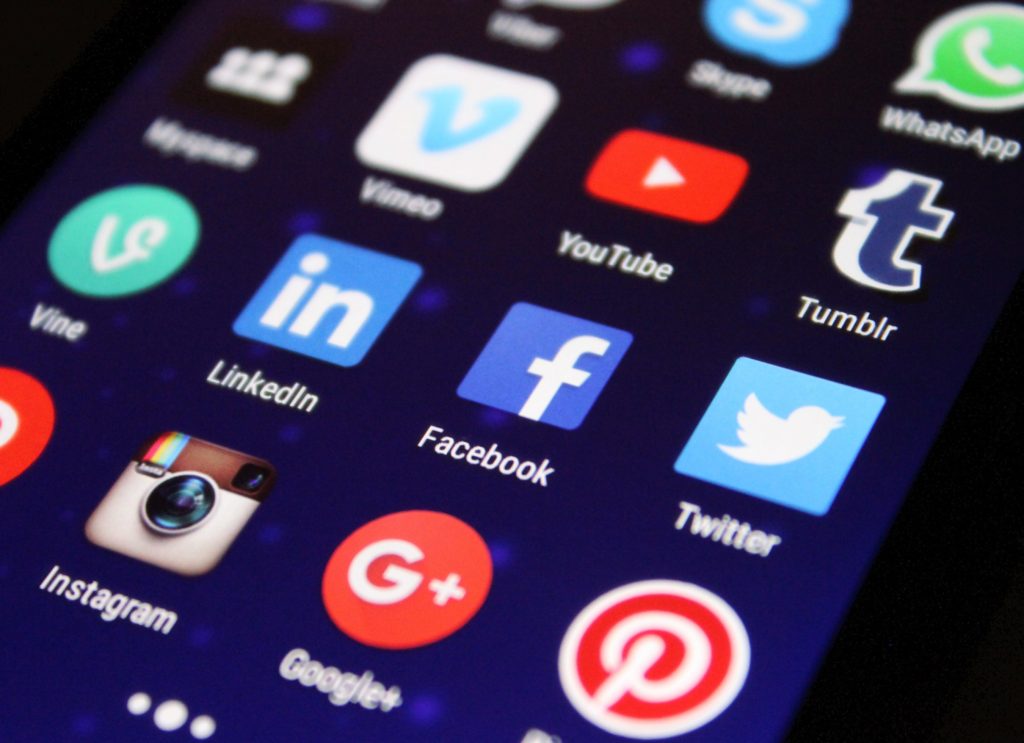Why Word of Mouth is the Best Marketing Strategy in 2019

The past 30+ years has brought light-speed change to our society and our economy. The past 2 major socioeconomic eras have led to dramatic changes in the way we advertise and market, and the new current era will likewise make its presence felt today in 2019. These 3 socioeconomic eras I speak of are the information economy, the attention economy, and now the current trust economy. I will argue that these different eras led directly to subsequent waves of marketing changes. The numbers already show that word of mouth is more cost effective than online ads. These arguments will show why word of mouth will be, and in fact already has been for multiple years, the most effective marketing strategy of 2019, and why you need to take advantage.
The Information Economy
The Information Economy came alongside the birth of the personal computer and the internet. Before the internet, for those old enough to remember, local advertisements were typically found in the yellow pages and on newspapers. As web portals and link listing sites such as Yahoo and Google came about, the availability of information exploded. A simple search allowed all the world’s knowledge to be at your finger tips. At their core the yellow pages and Google were the same – people needed information, and so they gave it to them in the most efficient way they could. Of course, to simply say the difference between the yellow pages and Google is scale wouldn’t quite capture its significance. Nevertheless, it was to the marketer’s advantage to have their business information be displayed right there where customers were searching. Seeing an ad for the “best plumber in town” when searching for a plumber? How convenient.

Google AdWords officially launched in 2000, and it would take some time for marketers to wrap their heads around advertising on the internet. Know-how and best practices were stuck in the yellow pages, and therefore ads on Google were extremely underpriced. Google Ads are based on an auctioning system, and due to the lack of competition, early adopters could get their name out to thousands of people for pennies on the dollar compared to what people were paying otherwise. The value of these ads were undeniable as Google’s ad revenue grew well over 100% year over year between 2000-2005.
The Attention Economy
Markets are inevitably efficient, despite tendencies on being sluggish sometimes, and will catch up to things that are underpriced. Having your information simply available on the web was no longer enough. Alongside the rise of Facebook, Youtube, and Twitter – by 2005 there was an abundance, even an overwhelm of information and online content available. Fighting for the customer’s attention in a noisy world became the marketer’s new reality. This meant knowing where your customer’s attention was – where they spent their time and what they cared about. Does your customer care about the environment? That means you do too. Are they turned off by impossible beauty standards and desire better definitions of beauty? Then so do you. Do they spend hours on end looking at cat memes? That doesn’t mean you should, but there’s a marketing campaign for that too.
Social media for better or for worse has made this personalized information available to every marketer willing to look. Now you can target ads by gender, age group, hobbies and interests, even relationship status (although this was removed in 2018). Dating app? Maybe you should filter out those who aren’t single (unless you work for Ashley Madison of course). Venture capitalist? Maybe filter for a person based in Tokyo, in their 30s, technical background, super handsome, and named Timothy Andersen (email me at info@bazuru.jp).

The point is that gaining attention was the new currency, and gaining it via targeting on SNS ads was underpriced. Even now in 2019, experts suggest that it is still underpriced, and that you should definitely be spending your dollars there. Although I am arguing that word of mouth is more effective than ads overall, I am by no means suggesting you should ignore or give up on marketing channels that still make sense for your business.
The Trust Economy
The distrust in today’s politics and society at large is becoming increasingly toxic. Frankly I don’t care what side you’re on (we’re all human remember?), but it is becoming increasingly clear how easy it is to manipulate and spin opinion for selfish and many times even nefarious intent. Unfortunately marketers and advertisers must struggle with the same dilemmas of ethics versus short-term gain.
Youngsters today (I’m a millenial – we’re still young.. right?) have quite keen bullshit radars, and lean towards skepticism. A clear and direct consequence of this can be seen in how micro influencers are more cost effective than famous celebrities. By no means am I saying that celebrities are untruthful. The important point to take away is that people are less persuaded by those who they don’t have a bond or emotional connection with. Although celebrities have more followers overall, micro influencers have a closer emotional relationship to each individual and therefor have more persuasion per each individual.
It is that bond and emotional connection that brings us back to Bazuru, word of mouth, and why it matters in 2019. Why is word of mouth effective? You care about your friends. When they make a suggestion, you listen and you at least consider it. You trust it.

The numbers clearly reflect this fact. 92% of people believe friends more than ads. People are 4 times more likely to make a purchase if referred by a friend. Referrals influence up to an estimated 20%~50% of purchasing decisions. The opinions of those around you matter. Just think about the last time you booked a room on Airbnb, bought something on Amazon, or looked up a restaurant on Yelp. Did you care about the 5 star rating? Did you read the reviews of past customers? That’s trust systemized and brought to you at scale (let’s talk about the insecurities to manipulation another day).
How can you take advantage?
Trust is something you can’t take, you can only get (same thing for love – coincidence maybe?). This means making a great service or product that your customers love. This means caring. Karma is real my friends. If you care, they care back.
Next, you must give your customers the means to share your business with their communities. Encourage them to review your Yelp profile. Encourage them to follow you on Instagram and to tag them in photos. Finally, sign up with us at Bazuru to incentivize your customers to tell their friends about you directly. Maybe your customers get complimented for a great haircut at your salon or for looking fit and radiant from your weekly yoga lesson. Maybe they are excited to go to your event and want to bring along a buddy or saw your Spring season outfit that they thought would look great on their friend. These are opportunities that you can capture through Bazuru. We will help you incentivize and track them. Reward your best customers for sharing your business with their friends. Like I said – Karma is real. Show them you care and that you appreciate them. This will lead to stronger customer retention, and a stronger community.
We at Bazuru would love to learn and hear about your story. Follow us on Facebook and Instagram, and send us a message so we can discuss how we can help you grow your business to the next level.


